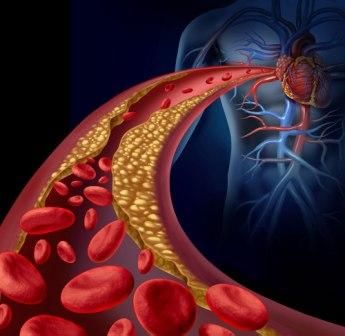Low Testosterone in Diabetic Men Linked to Advanced Markers of Cardiovascular Disease
Low total serum testosterone was independently associated with greater carotid intima media thickening and endothelial dysfunction but not with atherosclerotic plaques.

Middle-aged men who have type 2 diabetes (T2DM) and low testosterone levels have a greater risk of developing cardiovascular complications than similarly aged diabetic men with normal testosterone levels, according to a new study.
“Our study indicates a strong association between low testosterone concentration and the severity of atherosclerotic plaques as well as other key atherosclerotic markers in middle-aged men with type 2 diabetes,” said lead author Javier Mauricio Farias, MD, of the Hospital Universitario Sanatorio Guemes in Buenos Aires, Argentina. “The results of our study advance our understanding of the interplay between low testosterone and cardiovascular disease in patients with diabetes.”
Low total testosterone has been associated with an increased risk of atherosclerotic complications. Guidelines recommend that testosterone treatment should be reserved for men with clinical symptoms of hypogonadism and consistently low levels of testosterone. Yet, the number of older men receiving testosterone replacement therapy has jumped sharply during the past decade. It is not clear that testosterone replacement in older men with diabetes will reduce the risk of cardiovascular events.
This cross-sectional prospective study of 115 men with T2DM examined testosterone levels and key atherosclerotic markers, including carotid artery intimal media thickening (IMT), the presence of atherosclerotic plaques, endothelial function, and the inflammatory marker C-reactive protein. The men were younger than age 70 and had no history of cardiovascular disease.
More than half of the men with diabetes were found to have low serum testosterone levels. Carotid artery IMT negatively correlated with total testosterone concentration.
In addition, men who had low testosterone and T2DM were 6 times more likely to have increased thickness of the carotid artery and endothelium dysfunction compared to men with normal serum testosterone levels. More than half of the men with low testosterone and 10 percent of those with normal testosterone were found to be at higher risk for vascular disease.
Multiple logistic regression analyses adjusted for age, T2DM duration, hemoglobin A1c, lipids, treatment effect, and body mass index revealed that a low total testosterone level was independently associated with greater carotid intima media thickening and endothelial dysfunction, but not with the presence of atherosclerotic plaques.
The researchers concluded “low testosterone is associated with more advanced atherosclerotic disease markers in middle-aged patients with type 2 DM.”
“We still need to determine whether testosterone is directly involved in the development of atherosclerosis or if it is merely an indicator of advanced disease,” Dr Farias said. “This study is a stepping stone to better understanding the risks of cardiovascular events in men who have both low testosterone and type 2 DM.”
The researchers published their results on October 16, 2014 in the Journal of Clinical Endocrinology & Metabolism.
References:
Farias JM, Tinetti M, Khoury M, Umpierrez GE. Low testosterone concentration and atherosclerotic disease markers in male patients with type 2 diabetes.J Clin Endocrinol Metab. 2014;20142585. [Epub ahead of print] http://dx.doi.org/10.1210/jc.2014-2585